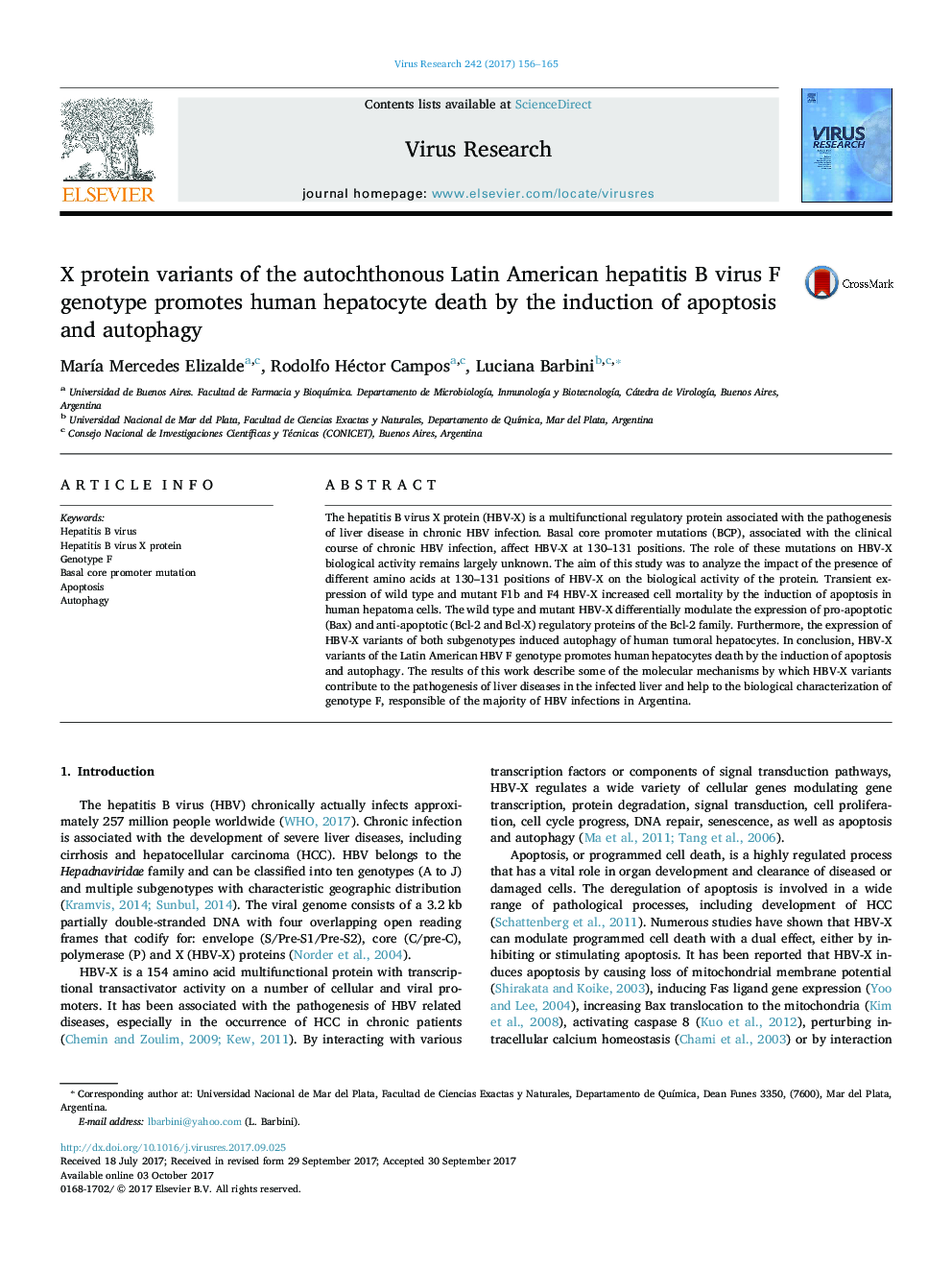| Article ID | Journal | Published Year | Pages | File Type |
|---|---|---|---|---|
| 5675278 | Virus Research | 2017 | 10 Pages |
â¢The impact of BCP mutations on HBV-X biologic activity was analyzed.â¢Genotype F wild type and mutant HBV-X induce apoptosis of human hepatocytes.â¢HBV-X variants modulate the expression of Bcl-2 family proteins.â¢Subgenotypes F1b and F4 HBV-X and variants induce autophagy of human hepatocytes.
The hepatitis B virus X protein (HBV-X) is a multifunctional regulatory protein associated with the pathogenesis of liver disease in chronic HBV infection. Basal core promoter mutations (BCP), associated with the clinical course of chronic HBV infection, affect HBV-X at 130-131 positions. The role of these mutations on HBV-X biological activity remains largely unknown. The aim of this study was to analyze the impact of the presence of different amino acids at 130-131 positions of HBV-X on the biological activity of the protein. Transient expression of wild type and mutant F1b and F4 HBV-X increased cell mortality by the induction of apoptosis in human hepatoma cells. The wild type and mutant HBV-X differentially modulate the expression of pro-apoptotic (Bax) and anti-apoptotic (Bcl-2 and Bcl-X) regulatory proteins of the Bcl-2 family. Furthermore, the expression of HBV-X variants of both subgenotypes induced autophagy of human tumoral hepatocytes. In conclusion, HBV-X variants of the Latin American HBV F genotype promotes human hepatocytes death by the induction of apoptosis and autophagy. The results of this work describe some of the molecular mechanisms by which HBV-X variants contribute to the pathogenesis of liver diseases in the infected liver and help to the biological characterization of genotype F, responsible of the majority of HBV infections in Argentina.
